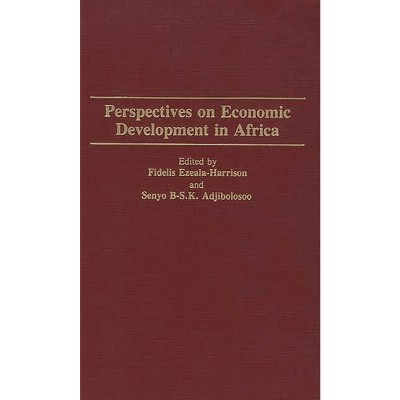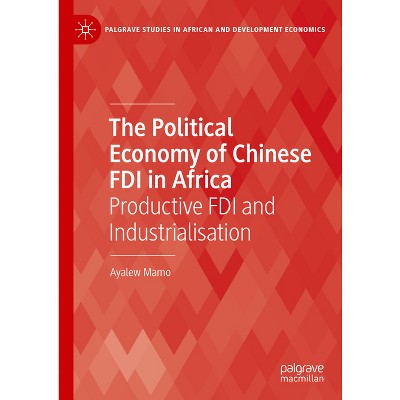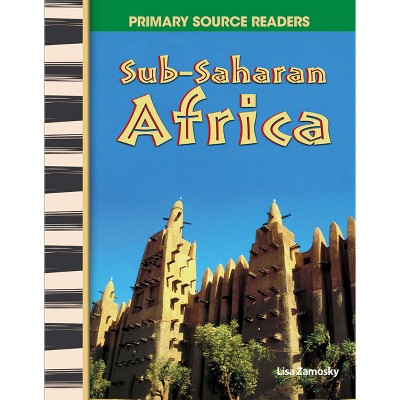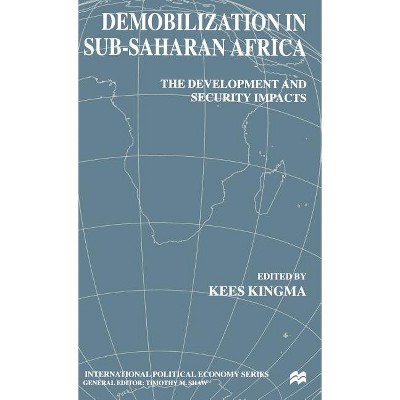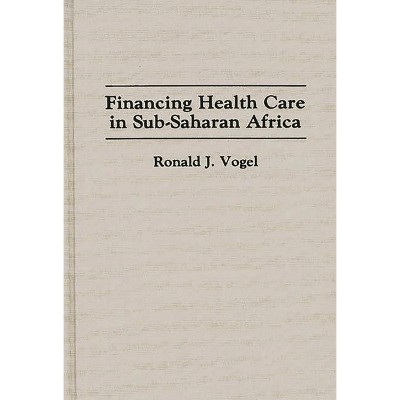Sponsored

Inequalities in Sub-Saharan Africa - (Africa Development Forum) by Anda David & Murray Leibbrandt & Vimal Ranchhod & Rawane Yasser (Paperback)
$44.49Save $5.01 (10% off)
In Stock
Eligible for registries and wish lists
Sponsored
About this item
Highlights
- The growing disparity between the rich and poor remains a critical challenge, affecting countries across all continents, irrespective of their per capita gross domestic product.
- About the Author: The World Bank came into formal existence in 1945 following the international ratification of the Bretton Woods agreements.
- 292 Pages
- Business + Money Management, International
- Series Name: Africa Development Forum
Description
About the Book
Drawing evidence from recent research, this book focuses on the political economy of inequality, social mobility, and climate change, to provide an important contribution to the research on inequality in Africa.Book Synopsis
The growing disparity between the rich and poor remains a critical challenge, affecting countries across all continents, irrespective of their per capita gross domestic product. This widening gap not only impedes efforts to eradicate extreme poverty but also hinders progress toward social justice and resilience-building. Rising inequalities pose substantial barriers to sustainable development, and it is within this context that this book, Inequalities in Sub-Saharan Africa: Multidimensional Perspectives and Future Challenges, contributes to ongoing debates, offering a comprehensive analysis of the current challenges and future perspectives of inequality on the African continent. Despite the intensification of calls for wealth taxation and inequality reduction, progress has been slow. A key challenge lies in creating a viable political path for implementing progressive taxation policies. Resistance from those benefiting from the current system often stalls efforts, making progress difficult. Moreover, reducing inequality requires not only ex-post redistribution but also pre-distribution mechanisms that address inequality at its roots. Policies targeting education, competition, financial market regulation, and industrial development all hold the potential to create equitable economic opportunities, ensuring access to credit, job creation, and more-balanced economic growth. Despite facing unique, profound challenges, Africa is often overlooked in these global discussions. This book seeks to place the continent's issues of income inequality, unequal access to education and health care, climate vulnerability, and inclusive growth at the center of the conversation. The book further advocates for innovative policies, including competition reforms and bargaining frameworks that shift the balance between capital and labor. Given that inequality in Africa is deeply rooted in historical, economic, and institutional factors, a stronger focus on pre-distribution policies is necessary. These systemic changes can help reshape the conditions under which inequality emerges and persists. In addition to policy reforms, it is vital to strengthen the research and academic infrastructure that underpins the understanding of inequality. Equity concerns must be addressed within the scientific field, and African research capabilities must be bolstered. This volume, written in collaboration with the African Center of Excellence for Inequality Research, calls for a greater focus on empowering African researchers as part of a broader development strategy. By doing so, it aligns with the World Bank's and the Agence Française de Développement's commitment to supporting research as a critical tool for sustainable development.About the Author
The World Bank came into formal existence in 1945 following the international ratification of the Bretton Woods agreements. It is a vital source of financial and technical assistance to developing countries around the world. The organization's activities are focused on education, health, agriculture and rural development, environmental protection, establishing and enforcing regulations, infrastructure development, governance and legal institutions development. The World Bank is made up of two unique development institutions owned by its 185 Member Countries. The International Bank for Reconstruction and Development (IBRD) focuses on middle income and creditworthy poor countries and the International Development Association (IDA), which focuses on the poorest countries in the world.Dimensions (Overall): 10.0 Inches (H) x 7.0 Inches (W) x .76 Inches (D)
Weight: 1.55 Pounds
Suggested Age: 22 Years and Up
Series Title: Africa Development Forum
Sub-Genre: International
Genre: Business + Money Management
Number of Pages: 292
Publisher: World Bank Publications
Theme: Economics
Format: Paperback
Author: Anda David & Murray Leibbrandt & Vimal Ranchhod & Rawane Yasser
Language: English
Street Date: January 31, 2025
TCIN: 1002954726
UPC: 9781464821509
Item Number (DPCI): 247-29-6946
Origin: Made in the USA or Imported
If the item details aren’t accurate or complete, we want to know about it.
Shipping details
Estimated ship dimensions: 0.76 inches length x 7 inches width x 10 inches height
Estimated ship weight: 1.55 pounds
We regret that this item cannot be shipped to PO Boxes.
This item cannot be shipped to the following locations: American Samoa (see also separate entry under AS), Guam (see also separate entry under GU), Northern Mariana Islands, Puerto Rico (see also separate entry under PR), United States Minor Outlying Islands, Virgin Islands, U.S., APO/FPO
Return details
This item can be returned to any Target store or Target.com.
This item must be returned within 90 days of the date it was purchased in store, shipped, delivered by a Shipt shopper, or made ready for pickup.
See the return policy for complete information.






